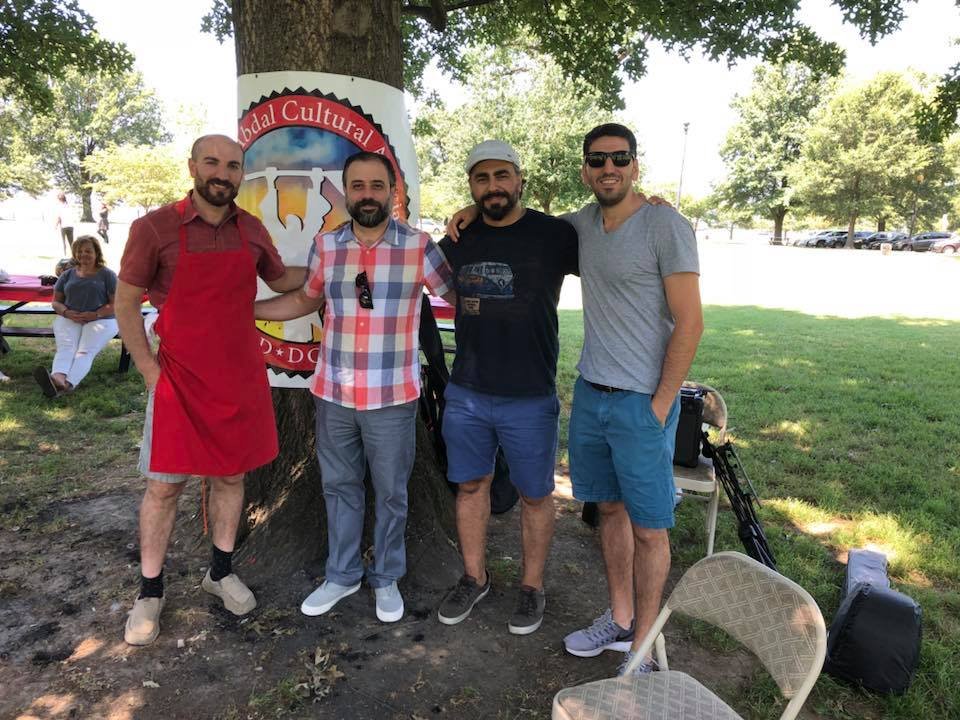Vestibulum odio quam, lobortis a est sit amet. Aenean dictum mauris eros, eu porta odio pharetra pharetra. Aenean mollis mattis justo non facilisis.
Contact Us
- Italy —785 15h Street, Office 478 Trieste, De 81566
Social Media

Horse Details
- Stallion : Appaloosa
- Weight : 560 kg
- Speed : 45 - 60 mph

Horse Details
- Stallion : Quarter Horse
- Weight : 450 kg
- Speed : 55 - 60 mph

Horse Details
- Stallion : Thoroughbred
- Weight : 485 kg
- Speed : 40 - 45 mph
ALEVI GEOGRAPHY
It is a historical fact that Alevi settlements are concentrated more in remote mountainous areas in contrast to Sunni communities generally settled in plain and flat regions and usually dominated town and city centers. This social and geographical isolation is an obvious result of the confrontations between Alevis and Sunnis and centuries old oppression applied by the latter over the former. Given the fact that this geographical concentration determines their ways of living, Alevis were traditionally either semi-nomadic herding or household based agriculture society before the 1960s. Considering their economically and socially disadvantageous position emerged as a result of this isolation, it would not be surprising to note that Alevis largely participated internal and external migration waves started in the 1950s. Today, traditionally rural background Alevi communities have largely been urbanized in Turkey and Europe.
Alevis in Europe:
It is largely claimed that Alevis are overrepresented among internal and external migration waves emerged in the 1950s. The bloody attacks targeted Alevis at the end of the 1970s in Çorum, Elbistan, Maraş, Malatya, Sivas and Yozgat, enforced their participation especially in international migration waves to Europe. Today, it is estimated that approximately a million Alevis are living in Europe. The European Alevi Confederation represents more than 250 Alevi Cultural Centers, which are organized under national federations in Austria, Belgium, Denmark, Germany, France, the Netherlands, Norway, Sweden, and Switzerland.
Alevi Demands in Turkey:
The abolishment of the Directorate of Religious Affairs:
which is a massive public institution with over hundred thousand employees but do not provide services for Alevis, Assyrians, Christians or Jews but only for Sunnis. Alevis rightfully claim that religious services should not be sponsored by the state according the secularism principle.
The abolishment of compulsory religion courses:
The courses on religion have become compulsory for secondary education with the military coup in 1980. The curriculum of these courses is partially depended on Sunni Islam. There are thousand cases in which Alevi pupils are illegally forced to practice Sunni rituals and to memorize Sunni prayers. If they refused to do so, they are intentionally failed. Following a complaint filed by Hasan Zengin and his daughter Eylem, both Alevis, the European Court of Human Rights (ECHR) ruled that the content of these religious classes violated human rights and contradicted the principles of plurality and objectivity in 2008.
- The recognition of cemevi: Although there is no specially designated place for worshipping in Alevism, having a separate building to provide basic social and spiritual services became a necessity for Alevis living in the cities. Alevis established their own cultural centers since the beginning of the 1990s, although the status of these centers is not clearly defined legally. Alevis demand to recognition of cemevis (Alevi cultural centers and place of worship) as a place of worship of Alevis to secure their social, cultural and spiritual practices.
- The abolishment of compulsory Mosque constructing: As a strategy for assimilating Alevis, the central authorities construct mosques in Alevi villages without the consent of Alevis since the 18th century. Alevis demand termination of this policy.
- The Madımak Museum: 33 persons (poets, writers, singers, dancers and artists) were murdered in the Hotel Madımak set fire by a crowd of Islam religious fundamentalist protesting the fourth Pir Sultan Abdal Cultural Festival organized in Sivas in 1993. Alevis claim that this hotel should be converted into a museum of commemoration and shame.
- Dersim and Maraş Massacres: In the framework of this previous demand, Alevis also require Turkish government to disclose official archives about the massacres in Dersim 1938 and Maras 1978. During the violent martial campaign from the summer of 1937 to the spring of 1938, thousands of Alevi Kurds and Zazas were killed and thousands were forcefully displaced. Despite all attempts by the families, the grave sites of Seyit Rıza (the leader of Dersimi communities executed by the Turkish authorities) and his followers still have not been disclosed. Alevi communities were targeted by a series of the right wing militant attacks at the end of the 1970s in Eastern and Central Anatolian provinces such as Malatya (17-18.04.1978), Sivas (03-04.091978), Maraş (19-25.12.1978), and Çorum (02-10.07.1980) and Hatay (14.01.1980). Maraş was the most significant area. Armed right wing militants, called Grey Wolves, killed more than hundred Alevis including new born babies during six-day massacre. In the wake of this blood attacks, Alevis fled these provinces and also Turkey. Most of the Alevis living in the UK are coming from these provinces.
- The Alevi Lodges: Alevis reclaim their religious centers and lodges which were destroyed in 1826 by the Ottoman Empire and then abolished in 1925 by the Republic. These are the most significant institutions in preserving and reproducing Alevi culture. Some of these centers were reopened as cultural museums during the 1960s. Today, Alevis have to buy tickets to enter their spiritual centers. Hence, they demand transfer the ownership of these centers to Alevi associations.
All these demands can briefly be summarized under the main demand of constitutional recognition of Alevism as a particular belief.
Alevis in the EU Reports: Progress Report on Turkey’s Accession to EU
1998: p.19: As far as freedom of religion is concerned, religious education (Sunni) in state primary schools is obligatory. Upon verification of their non-Muslim background, Lausanne Treaty minorities (see below) are exempted by law from Muslim religious instruction. Religious minorities recognized by Turkey are free to exercise their religion, but practice of religion other than (Sunni) Islam is subject to many practical bureaucratic restrictions affecting, for example, the ownership of premises and expansion of activities. The Assyrian Orthodox religion is not recognized as a religious minority and is subject to pressures in the exercise of its religious education. Turkey’s Alawi Muslims are estimated to number at least 12 million. There are no government-salaried Alawi religious leaders, in contrast to Sunni religious leaders.
2000: p.18: The official approach towards the Alevis seems to remain unchanged.
2001: p. 27: freedom of religion: No improvement in the situation of non-Sunni Muslim communities has taken place. The official approach towards the Alevis is unchanged.
2002: p. 37: freedom of association and peaceful assembly: In February the Cultural Association of the Union of Alevi and Bektasi Formations was dissolved on the grounds that, according to Articles 14 and 24 of the Constitution, and Article 5 of the Law on Associations, it was not possible to found an association by the name of Alevi or Bektasi.
2003: p. 34: Freedom of Religion: As far as the situation of non-Sunni Moslem communities is concerned, there has been a change as regards the Alevis.
2004: p. 44: As far as the situation of non-Sunni Muslim minorities is concerned, there has been no change in their status. Alevis are not officially recognized as a religious community…
2005: p. 29-30: With respect to freedom of religion only very limited progress has been made since October 2004 in terms of both legislation and practice. Despite improvements in the legislation governing associations, the current legal framework still does not recognize the right of religious communities to establish associations with legal personality in order to promote and protect their religions… Alevi children are subject to compulsory Sunni religious instruction in schools, which fails to acknowledge their specificity.
2006: pp. 15-16: There have been no developments in relation to the situation of the Alevi community. Alevis face difficulties for opening their places of worship (Cem houses). Cem houses are not recognized as places of worship and receive no funding from the authorities.
2007: p. 17: Alevis face difficulties with opening their places of worship (Cem houses or “Cemevi”). Cem houses are not recognized as places of worship and receive no funding from the authorities
2008: p. 18: However, the government’s initiative has not been followed through. Overall, Alevis continue to face the same problems as before, in particular as regards education and places of worship.
Since then a slight improvement has been recorded concerning the status of cemevis and Alevi associations. However, the current situation is not pleasant as far as concerning the main demands raised by Alevis.
Alevis in the UK: The UK has never been a destination for contract-based guest-worker labor emigrating from Turkey to Europe. The presence of people from Turkey in this country is mainly as a result of the influx of refugee flows from 1985 to 1995. The exact number of this population is also unknown in official statistics. However, community leaders and academic researches estimate the number of immigrants coming from Turkey at 250,000. Alevis are overrepresented in this population with 200,000 persons heavily concentrated in London. In this sense, London is one of the most important cities with considerable Alevi population in Europe. The geographical concentration of Alevi communities living in the UK diversified since the mid-2000s. Today, considerable Alevi communities living in Birmingham, Bournemouth, Brighton, Croydon, Coventry, Glasgow, Leicester, Liverpool, Nottingham, Manchester, South London. New Alevi Cultural Centers were established in Glasgow, Croydon, Coventry, Bournemouth, South London Since 2008.
England Alevi Cultural Center and Cemevi was established in 1993 in London to meet basic social and cultural needs of newly emerging Alevi population in this city. EACC has sub-branches of Women, Youth, Culture and Media. Since then, EACC provides
- Legal and advice services: EACC’s voluntary solicitors and advisors provide legal, advisory and translation services for anyone who is in need of without demanding any compensation.
- Educational Services: EACC provides various courses especially for youngsters such as mathematics, Turkish, science, chess, after school classes, English ESOL and Alevism.
- Cultural Services: EACC organizes annual youth festival, Hacı Bektash Veli Youth Festival, on October since 1993. Our first open-air park festival was organized firstly in on June 2011. Besides these festivals, EACC also invites singers, music bands, Alevi minstrels and theater groups from Turkey and Europe. We also provide courses on semah (ritual dance) and saz (lute-like instrument) so as to transmit Alevi culture to younger generations.
- Belief Services: EACC also invites dedes from Turkey and Germany to organize cem rituals in London. In the year 2010, we organized 9 cem rituals in London. By providing funerals services, the EACC meet another most significant need of Alevis living in the UK. In the year 2010, 90 funeral ceremonies were organized in the EACC.
- Media and Public Relations Services: We regularly prepare media-releases to inform wider public about our events and services. In 2010, we commenced a new associational bi-lingual journal and internet-based radio and TV channels so as to increase public awareness about Alevism. You reach our web address (www.alevinet.org). (cemevi@live.co.uk)
- Charity Sales: We organize charity regular sales to rise funding to provide daily free lunch to our elderly community members and to sponsor low-income Alevi students in Turkey.
- Cultural and Political Lobbying: In cooperation with Alevi Associations in Turkey and in Europe, we are lobbying in Europe to overcome difficulties of experiencing and practicing Alevism in Turkey. We do also work for developing a good inter-communal dialogue with other communities living in London.
As a result of geographical distribution of Alevis living in the UK, EACC encouraged the establishment of new Alevi Cultural Centers in Glasgow in 2007, Coventry in 2010, South London in 2011, Croydon in 2011, Bournemouth in 2011, Harrow in 2011 and Nottingham in 2012





